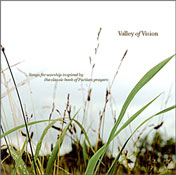 –continuing from part 4.
–continuing from part 4.
I thought that the fifth post would be the last, but Will Dudding brought up some objections in the comments of the last post. This has caused me to dig a little deeper, and in the end has only increased my confidence in this understanding of the land promise. So before drawing out the implications of this view of the land promise (and then concluding our series), I need to pause and answer some objections. Answering these objections will also serve to recap this series and help us gain an even better appreciation for how the land promise applies to us.
Answering Objections
Will’s comments focused on several questions relating to the specific promises made to Abraham. He focused on two places in Genesis where the land promise is specified, but I’d like to quote all the places the land promise to Abraham is mentioned:
Now the Lord said to Abram, “Go from your country… to the land that I will show you. And I will make of you a great nation….” “To your offspring I will give this land”. (Gen. 12:1-2a; 7)
“Lift up your eyes and look from the place where you are, northward and southward and eastward and westward, for all the land that you see I will give to you and to your offspring forever. I will make your offspring as the dust of the earth…. Arise, walk through the length and breadth of the land, for I will give it to you.” (Gen. 13:14b-17)
On that day the LORD made a covenant with Abram, saying, “To your offspring I give this land, from the river of Egypt to the great river, the river Euphrates, the land of the Kenites, the Kenizzites, the Kadmonites, the Hittites, the Perizzites, the Rephaim, the Amorites, the Canaanites, the Girgashites and the Jebusites”. (Gen. 15:18-21)
“I have made you the father of a multitude of nations…. And I will establish my covenant between me and you and your offspring after you throughout their generations for an everlasting covenant to be God to you and to your offspring after you. And I will give to you and to your offspring after you the land of your sojournings, all the land of Canaan, for an everlasting possession, and I will be their God. (Gen. 17:5b-8]
“I will surely bless you, and I will surely multiply your offspring as the stars of heaven and as the sand that is on the seashore. And your offspring shall possess the gate of his enemies, and in your offspring shall all the nations of the earth be blessed…” (Gen. 22:17-18]
From reading these promises, it is easy to see why Will sees problems with my view. He sees unconditional promises made to Abraham, concerning a specific plot of land to be given to Abraham’s offspring to possess forever. He fears I am saying God has cast off Israel and replaced her with the Church, and that I am ignoring these “forever” promises, and turning them into a spiritual pseudo promise so I can say they are fulfilled. It’s as simple as this: Abraham’s descendants haven’t possessed this land, so the fulfillment must still be expected in the future.
To respond to these objections is a large task, because so many fundamental assumptions are wrapped up in them. Nevertheless, I will give this a try.
The Possession of the Promised Land
I am claiming that Joshua 21:43-45 declares that God fulfilled his promise to give the land to Israel. Nehemiah and Solomon also declare God did not drop the ball on any of his promises. In studying this further, I realize I neglected an important passage in 1 Kings.
Judah and Israel were as many as the sand by the sea. They ate and drank and were happy. Solomon ruled over all the kingdoms from the Euphrates to the land of the Philistines and to the border of Egypt. They brought tribute and served Solomon all the days of his life. (1 Kings 4:20-21)
The inspired author of 1 Kings certainly means to grab our attention here. He is proclaiming the promises concerning Abraham’s seed being as numerous as the sand of the sea, have been fulfilled. He is also pointing us to the exact dimensions of the land promised in Gen. 15, as being now inhabited and ruled over by Solomon. Of course, later in 1 Kings 8:56, Solomon will actually declare that all the promises have been fulfilled. So in one sense clearly, God declares through inspired authors of Scripture, that the Israelites did indeed possess the land. Hold with me here, as we go on to address some other objections.
The Inheritors of the Promised Land
Now the promises above stipulate that Abraham’s descendants will inherit the land. But we observed previously (in part 1) that the New Testament states that the very promise that Abraham would inherit the world, was given to all the spiritual descendants of Abraham (see Rom. 4:11-16). To expand on this, let’s note a few important passages below:
For not all who are descended from Israel belong to Israel, and not all are children of Abraham because they are his offspring, but “Through Isaac shall your offspring be named.” This means that it is not the children of the flesh who are the children of God, but the children of the promise are counted as offspring. (Rom. 9:6b-8]
Know then that it is those of faith who are the sons of Abraham. (Gal. 3:7)
Now the promises were made to Abraham and to his offspring. It does not say, “And to offsprings,” referring to many, but referring to one, “And to your offspring,” who is Christ. (Gal. 3:16)
…you are all one in Christ Jesus. And if you are Christ’s, then you are Abraham’s offspring, heirs according to promise. (Gal. 3:28b-29)
…the Gentiles are fellow heirs… (Eph. 3:6a)
Now you, brothers, like Isaac, are children of promise. (Gal. 4:28]
That is why it depends on faith, in order that the promise [re: the land, see v. 13] may rest on grace and be guaranteed to all his offspring””not only to the adherent of the law but also to the one who shares the faith of Abraham, who is the father of us all, (Rom. 4:16)
See how all the above verses go hand in hand with Rom. 4:16 (the last verse cited above). This is clear New Testament teaching here. Unequivocal. “Offspring of Abraham” = “those who believe in Jesus, who is the specific Offspring of Abraham”. We know that Abraham saw Christ’s day, and his faith was in a future deliverer (John 8:58, Rom. 4, Gen. 3:15). And so we know this New Testament assertion must mean something. If we believers are co-heirs with Abraham and descendants of him, than this seems to change how we are to view the promises made in Gen. Again, suspend disbelief until our next point.
The Nature and Concept of Land
When we talk of land, we must think in ancient terms. Land was always sacred, and vastly more important in ancient times than today. A King and his realm was totally tied up in his land. Like a King, so a god. It was assumed that deities were tied up to the land, and the god of the Canaanites wouldn’t hold sway in Nineveh. Remember Namaan? He gets healed of leprosy by Elisha the prophet and what does he request? A barrel full of dirt! He felt he needed part of the land to take back to Syria so that he could be a worshiper of Jehovah.
Of course, Jehovah declares that he is the One True and Living God. He alone is God. And He owns the whole Earth. Nevertheless, land is integral in how God relates with his people. Adam and Eve needed an Eden. A place where they fellowshipped with God. If you note Abraham’s wanderings, the only places he builds altars are in the land God was giving him. Fellowship with God stemmed from being on His land.
Throughout Deuteronomy, a constantly reoccurring idea is that these laws are to be obeyed, “in the land that the LORD, the God of your fathers, has given you to possess — as long as you live in the land” (Deut. 12:1 NIV). Obedience is intricately connected to the land. And the land was a good land. “A land flowing with milk and honey”. This points out that the land is a new paradise — a place of communion with God and blessing. And throughout Deuteronomy it is clear that God is graciously giving this to the Israelites, even though they are exhorted to take it.
The land is intimately tied up with God’s redemptive work toward Israel. At the conclusion of laws regulating life in the land (Deut. 12-25), there is a powerful ceremony highlighting the importance of Israel viewing themselves as stewards of God’s land (Deut. 26:1-11). We will explore the nature of the land further as we look at conditionality and a few other topics in the next post.
Like this:
Like Loading...
 I recommend many modern hymns & contemporary songs for corporate worship. While the old hymns are certainly grand, the new songs God is giving to the church, are worthy of respect too.
I recommend many modern hymns & contemporary songs for corporate worship. While the old hymns are certainly grand, the new songs God is giving to the church, are worthy of respect too. Music Monday posts highlight the music which touched my heart on Sunday. I pray the message of these songs will help us all to live in the spirit of Worship all week long.
Music Monday posts highlight the music which touched my heart on Sunday. I pray the message of these songs will help us all to live in the spirit of Worship all week long.
 –continuing from
–continuing from